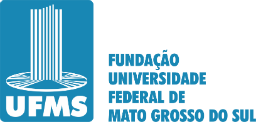(Português do Brasil) LARISSA ANGELINI DE ANDRADE GIANVECCHIO – A VERTICALIZAÇÃO DAS MULHERES EM PROFISSÕES VISTAS SOCIALMENTE COMO MASCULINAS NO INSTITUTO FEDERAL DE MATO GROSSO DO SUL, CAMPUS DE CORUMBÁ
Postado por: Thayná Carvalho da Silva
Compartilhe:

